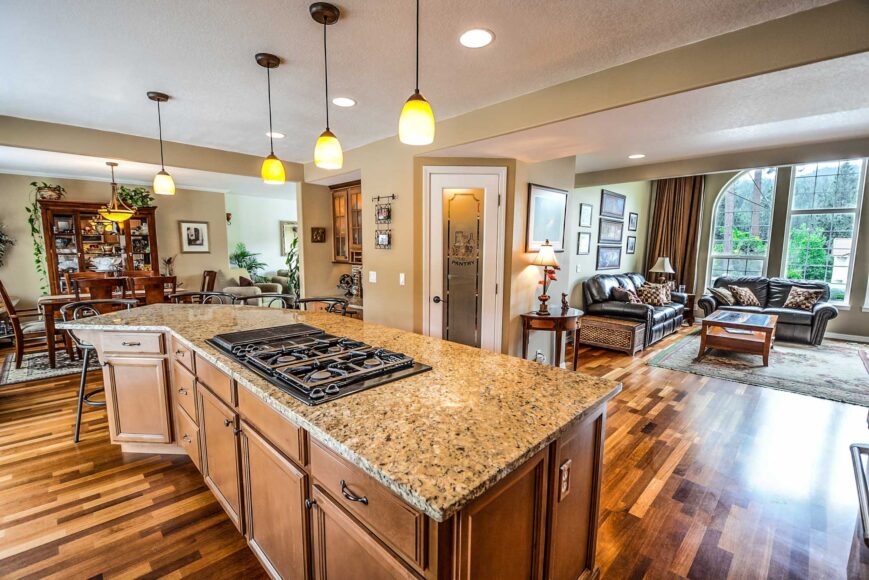When it comes to flooring options, hardwood floors have long been revered for their timeless beauty and durability. However, in recent years, alternatives such as vinyl and PVC flooring have gained popularity. While these alternatives offer certain benefits, they cannot match the superior quality, beauty, and durability of hardwood floors.
Polyvinyl chloride (PVC) can be found in many everyday items, from plastic water bottles to shoes. PVC floors are an option if you need to save some money and want the wood aesthetic. But if you have children or have concerns about your respiratory health, turning to hardwood flooring can be worth the additional investment.
PVC is also unable to be reused or recycled. When finished with the flooring or if it needs to be replaced, the materials go into the landfill. Hardwoods can be reused, recycled, or refreshed. Sanding down the finish or paint that previously lived on hardwood flooring can be a great way to refresh your home if you are tired of your flooring, or your floors need an upgrade.
In this article we compare vinyl and PVC flooring to hardwood floors, highlighting the distinctive characteristics, durability, maintenance requirements, and overall value to help you make an informed decision for your home.
- Authenticity and Aesthetic Appeal: Hardwood floors bring a sense of warmth, elegance, and authenticity to any space. The natural grain patterns, rich colors, and unique variations of hardwood cannot be replicated by vinyl or PVC flooring. Hardwood flooring ages gracefully, gaining character and charm over time, while vinyl and PVC flooring often look artificial and lack the natural beauty of wood.
- Durability and Longevity: When it comes to durability, hardwood floors are a clear winner. High-quality hardwood floors, when properly maintained, can last for generations. They are highly resistant to wear and tear and can be refinished multiple times to restore their original beauty. In comparison, vinyl and PVC flooring, while more resilient than other alternatives, are more prone to scratches, fading, and damage from heavy objects. They may require replacement after a few years of use, diminishing their overall lifespan.
- Maintenance and Repair: Maintaining hardwood floors is relatively simple and straightforward. Regular sweeping and occasional refinishing keep them looking their best for years to come. In contrast, vinyl and PVC flooring require less maintenance but can be more challenging to repair. If damaged, vinyl and PVC planks often need to be replaced entirely, which can be costly and time-consuming.
- Value and Investment: Investing in hardwood flooring adds significant value to your home. Hardwood floors are highly sought after by homebuyers and can increase the resale value of your property. They have a timeless appeal that transcends trends and offers long-term value. Vinyl and PVC flooring, while more affordable upfront, do not have the same level of desirability or lasting value as hardwood.
While vinyl and PVC flooring offer convenience and a “quick fix” affordability, they fall short in comparison to the authentic beauty, durability, and value that hardwood floors provide. Hardwood floors bring a sense of elegance, warmth, and timelessness to any space, creating a lasting impression. Their ability to age gracefully, endure generations, and be refinished makes them a wise long-term investment. When considering flooring options, it is worth prioritizing the unmatched qualities of hardwood floors over the temporary appeal of vinyl or PVC alternatives. Choose hardwood floors to elevate your home’s aesthetic and enjoy a truly exceptional living experience for years to come.

